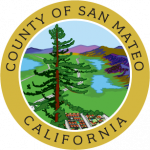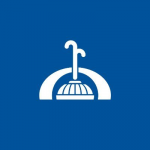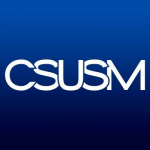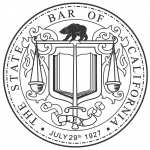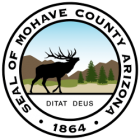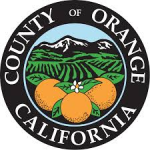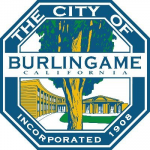4 Quick Facts About Working Government IT Jobs

I. Introduction
Government IT jobs offer unique opportunities for individuals seeking career stability, competitive benefits, and a balanced work-life arrangement. Taxpayer dollars fund these positions, which provide higher job stability than many private sector roles. Government IT jobs are also less affected by market fluctuations, ensuring consistent employment for qualified candidates.
In addition to job stability, these roles come with competitive salaries and comprehensive benefits packages, including retirement plans, health insurance, and paid time off. This provides long-term financial security. Furthermore, the increasing demand for IT professionals in government agencies, driven by advancements in technology and cybersecurity, makes these jobs highly desirable.
This article will explore four important facts about government IT jobs: job stability, competitive salaries and benefits, high demand for IT professionals, and work-life balance. Government employees often handle sensitive data, including managing personal telephone phone numbers and ensuring the protection of each personal data subject. Moreover, they must adhere to strict protocols when they disclose personal data online, ensuring government IT roles remain secure and trustworthy.

Quick Fact 1: Job Stability

One of the most significant benefits of government IT jobs is their unmatched job stability. Funded by taxpayer dollars, these positions provide consistent employment, even during economic instability. Government roles offer greater protection than private sector jobs, which are vulnerable to layoffs and budget cuts due to market fluctuations.
Government IT professionals are responsible for managing sensitive personal data, including the personal telephone phone number and information of each personal data subject they work with. This responsibility ensures that data is handled securely and complies with relevant laws. When government employees must disclose personal data online, they must follow strict protocols to provide security and privacy.
In addition to the stable environment, government IT jobs are supported by strong security and access controls. These positions focus heavily on protecting citizens’ data, ensuring that personal telephone phone numbers and other sensitive data are secure to the highest security standards. This makes government IT roles vital in maintaining public trust and safeguarding critical information.
In conclusion, government IT jobs provide the long-term stability many professionals seek, especially when working in a regulated environment where data security and protection are top priorities.
Quick Fact 2: Competitive Salaries and Benefits
Government IT jobs offer competitive salaries, even if they don’t always surpass the private sector. However, the benefits packages often provide a significant edge. These comprehensive packages include health insurance, retirement plans, and paid time off, ensuring long-term financial security. Government positions also offer payroll and tax services to support employees with personal data needs, ensuring their employment and education history are securely managed.
Retirement plans, including pensions, can sometimes be more beneficial in the long run than private sector jobs. This is because the government adheres to applicable data protection laws and strict personal data processing protocols, ensuring the safety and security of personal data like salary and payroll information. Employees also enjoy strong security and access controls, preventing unauthorized access to sensitive personal data.

Regarding data processing, government jobs must follow strict business and commercial purposes to manage employee benefits and compensation, ensuring that disclosed personal data is used properly. Government IT positions are a strong option for long-term job security with comprehensive benefits.
Quick Fact 3: High Demand for IT Professionals

The demand for IT professionals in government roles continues to rise. With over 79,000 federal employees currently working in IT, agencies are prioritizing cybersecurity and data services roles. Cybersecurity has become a key focus, as agencies must prevent threats and ensure that personal data collected automatically remains secure.
As technology advances, government agencies rely on skilled IT professionals to manage relevant data processing activity and maintain robust security and access controls. The need to process personal data securely and efficiently is a top priority, making skilled IT professionals crucial to protecting public information.
This demand also extends to hiring and employment purposes and the ability to handle sensitive personal data. With so much personal data at stake, IT professionals are responsible for upholding data protection laws and ensuring all personal data processing complies with legal regulations.
Quick Fact 4: Work-Life Balance
Government IT jobs are well known for offering a balanced work-life structure, essential for maintaining job satisfaction and personal well-being. Unlike many private sector roles, these positions provide predictable hours with minimal overtime or on-call responsibilities. This predictability especially appeals to individuals who prefer stable hours and reduced workplace stress.
One key factor enabling this balance is the structured handling of sensitive data, such as contact and employment data and personal telephone numbers. Government employees often need to automatically collect personal data, ensuring compliance with data protection laws while minimizing the need for after-hours work. Personal data originally collected in these roles must be processed during regular work hours, leaving less room for unexpected disruptions.
In these positions, government employees handle various tasks, including managing sales and customer relations and ensuring that the personal data discussed complies with legal requirements. By efficiently handling personal data subjects during scheduled hours, professionals can avoid the long, unpredictable hours often seen in private sector jobs. This allows them to collect data related to their tasks without the added stress of extensive overtime.
For those seeking a healthier balance, government IT jobs offer a structured environment where such personal data and other duties are managed efficiently, allowing for greater work-life harmony.

Conclusion
Government IT jobs provide four key benefits:
- Job stability
- Competitive salaries
- High demand for IT professionals
- A healthier work-life balance
These roles offer a secure career path and ensure that professionals can handle tasks such as disclosing personal data online and managing contact and employment data within regular work hours.
If you’re considering a career in IT, explore the opportunities available in government IT jobs. These positions offer stability and benefits while maintaining compliance with personal data protection standards. Government IT jobs could be ideal for those looking to grow professionally in a stable and structured environment.







